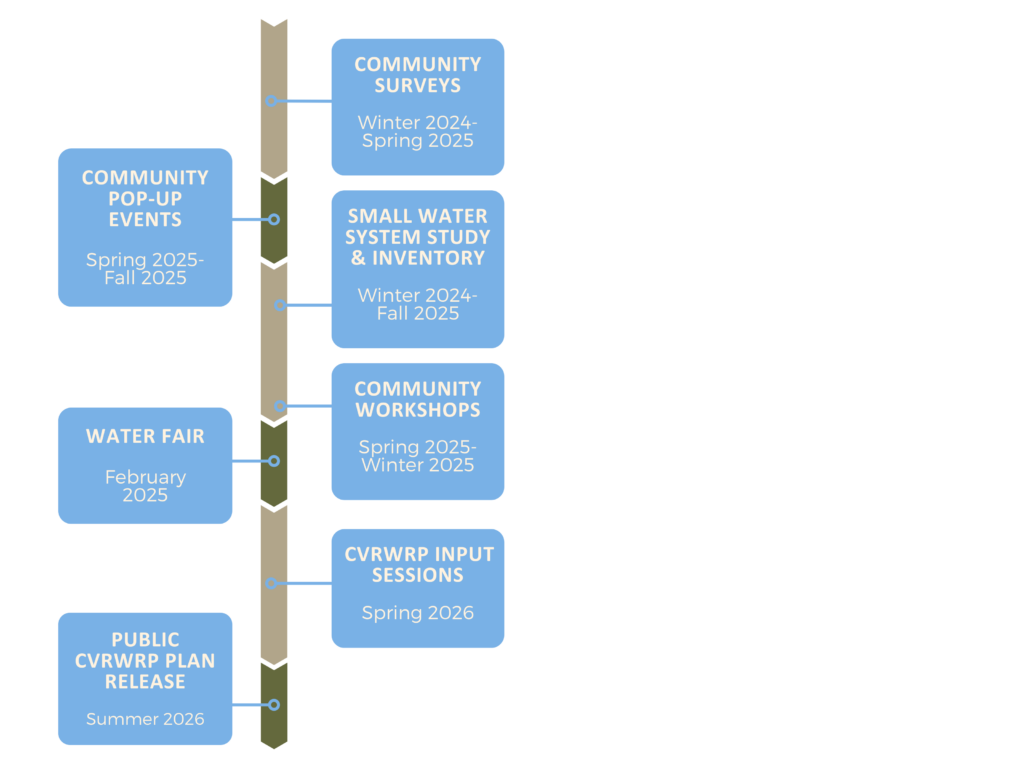
Project Goals and Timeline
The Coachella Valley Regional Water Resilience Plan (RWRP) aims to equitably address the pressing challenges posed by climate change. The Small Water System Study and Inventory, an element of the RWRP, will provide critical insights into the current state of small water systems and private domestic wells in the area, knowledge gaps, and priorities of domestic well users who have been facing flooding and water quality issues. The Inventory will be informed by a Climate Vulnerability Assessment, which will assess how flood, heat and drought are projected to impact the region’s water systems and communities that rely on them. Results of the Small Water System Study and Inventory and the Climate Vulnerability Assessment will help in the development of adaptation and implementation strategies, explained below. The entire RWRP process will center around and respond to input received from the community. A variety of community-driven events and engagement are planned for 2025. Learn more here. (Link to Get Involved page)
Climate Vulnerability Assessment
The Climate Vulnerability Assessment (CVA) will assess how climate hazards – such as flooding, drought, wildfire and extreme heat – will impact water systems and the people that rely on them in Coachella Valley. Using data from the State’s CalAdapt data platform and other climate projections used by regional agencies, the CVA will assess to what extent climate hazards will increase in likelihood and extremity over time, and how people, services, ecosystems and infrastructure will be impacted.
Small Water System Study and Well Inventory
The Small Water System Study and Well Inventory will provide an inventory of existing domestic and small water system groundwater wells and document existing well conditions and concerns. The Study will assess specific vulnerabilities of small water systems to identified climate change hazards, which will support definition of adaptation strategies for the Coachella Valley RWRP.
Adaptation and Implementation Strategies
Adaptation strategies are projects or approaches designed to help the regional community ecosystems, and infrastructure adjust to the changing conditions caused by climate change. These strategies focus on reducing risks and preparing for challenges like extreme heat, flooding, droughts, or stronger storms, essentially creating a “toolkit” to deal with future weather changes. These could include building flood barriers, planting more trees for shade, improving water storage systems, or creating emergency plans to protect people during extreme events. Implementation actions are the specific steps that will make adaptation strategies possible. Implementation actions focus on taking ideas and turning them into practical, on-the-ground solutions that help people and places adapt to a changing climate.
Community-Driven events and Engagement
The CVRWRP kicked off in October of 2024, with an aimed end date of August 2026. A variety of outreach events are planned during the interim twenty months.

